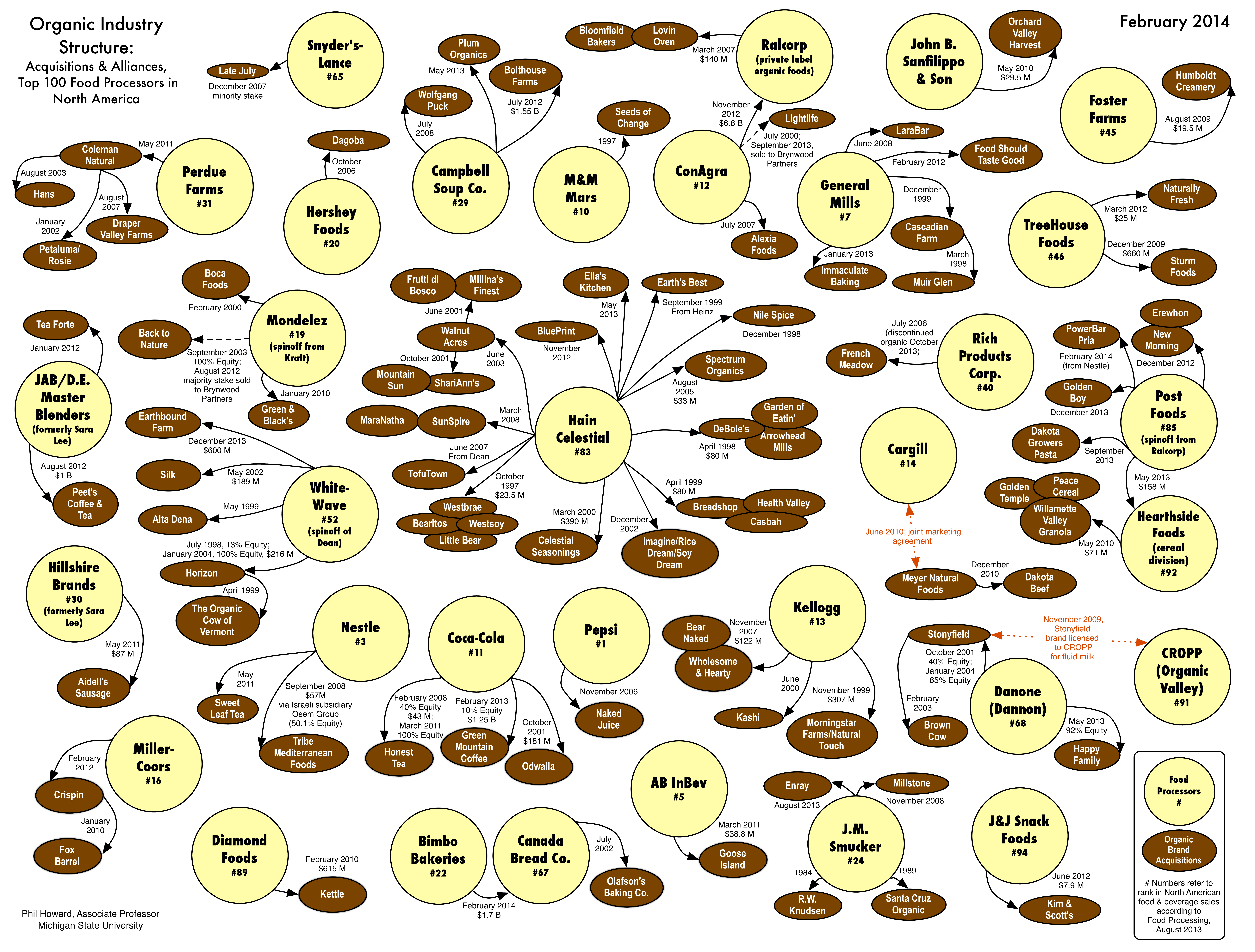It’s always a smart idea to buy organic, especially in this era of genetically engineered and chemical drenched “food-like products.”
But recently many grassroots activists and watchdog organizations have begun to notice an alarming trend: that “Big Food” companies have been buying up independent organic companies in order to cash in on the growing movement back to real food.
In some cases, the changes will be mostly cosmetic, as the companies are allowed to continue producing their foods as they see fit and to uphold their usual standards.
But oftentimes this is not the case, as their new parent companies impose new business practices and reduce standards in order to make these companies more profitable.
Consider what happened with the soy and nut milk company Silk, whose founder Steve Demos sold to Dean Foods (it later became operated by the Dean spin-off company WhiteWave, which also owns Horizon Organic).
Demos originally continued working with the company but was eventually told he “was not the right man for the job.”
Silk later switched to soybeans that were non-organic and likely to be genetically modified while barely changing the packaging and not informing its customer base. This is just one example of how big food brands can corrupt organics.
New Graphic Shows Big Food’s Grip on Organics
The Silk example is just one of many showing the potential consequences of Big Food’s involvement in organics. Horizon’s organic farming operations for example have also been criticized by the Cornucopia Institute, which filed a third legal complaint against them on Feb. 11, 2014 alleging that they have essentially been running a giant factory farm disguised as an organic operation (you can read the details here).
Considering the risks of allowing Big Food to takeover organic, it’s important that we know which companies are owned by which large parent corporations.
In 1995, there were 81 independent organic processing companies in the United States but a decade later, Big Food had acquired all but 15 of them according to the Cornucopia Institute. That being said, there are still plenty of smaller organic companies that are worthy of our support (hint: they’re not shown in the chart below).
Dr. Philip H. Howard, who originally published the popular “Who Owns Organic?” infographic in 2003, recently came out with an updated version that will show you exactly who owns which organic companies.
You can view the chart below, or see it by clicking on this link. If the chart is hard to see on your computer, you can use CTRL and either the + or – keys to zoom in and see better.
The chart has been changed to reflect new developments including WhiteWave’s controversial purchase of Earthbound Farm, the U.S.’ largest organic produce grower.
Many of the same corporations that own popular “natural” and organic brands such as Honest Tea, Cascadian Farm and others also happen to be the ones that spent millions to defeat GMO labeling initiatives in Washington and California.
Howard summed up his chart in a release on the Institute’s website.
“Consumers who want food companies that embody more of the original organic ideals would do well to seek out products from independent organic firms,” Howard advises. “Given the very uneven playing field they are competing in, independent organic processors are unlikely to survive without such support.”
You can read more of Dr. Howard’s work on the food industry by clicking on this link.
Thanks for reading and keep supporting independent organic companies (and spreading the word)!
P.S. You can join thousands of other readers on our email list by clicking here (and you’ll also receive a free eBook).
Thanks for installing the Bottom of every post plugin by Corey Salzano. Contact me if you need custom WordPress plugins or website design.





